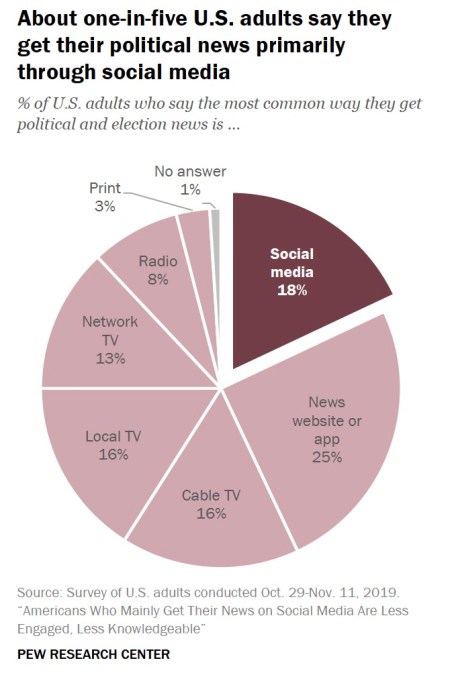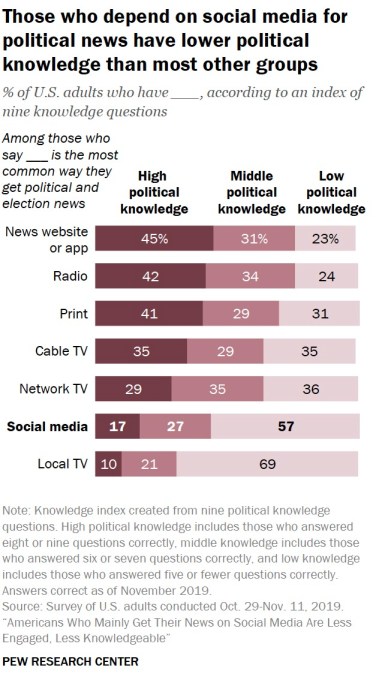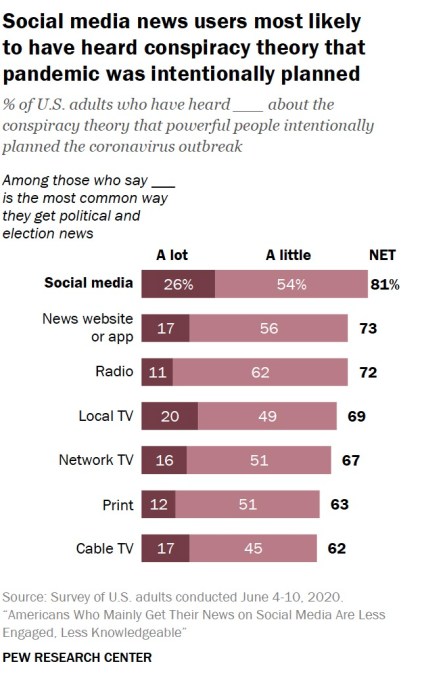Archive of ‘learning’ category
https://www.edweek.org/ew/articles/2020/07/22/round-the-clock-communication-is-exhausting-teachers.html
Even before the pandemic, texting and school communication apps—like Remind or ClassDojo—had given students and families new ways to contact teachers 24/7. But teachers like Davis say that school closures have increased the pressure to be “always on” for students and parents, as remote instruction has blurred the boundaries between work life and home life.
Teachers want to be available to their students, to clarify their questions and calm their fears. But it’s also crucial that teachers set time aside for themselves, and that schools and districts respect—and even help create—these boundaries
Developing systems that protect teacher well-being should be a priority for schools in the fall, …, as the demands of remote learning aren’t likely to disappear.
An ‘Internal Battle’ Over Boundaries
administration set a policy that teachers didn’t have to respond to messages sent after 5 p.m. until the next day.
or
distributing responsibility. Grade-level teams could take turns having “on” hours
Study: U.S. adults who mostly rely on social media for news are less informed, exposed to more conspiracies from r/technology
Study: US adults who mostly rely on social media for news are less informed, exposed to more conspiracies
A new report from Pew Research makes an attempt to better understand U.S. adults who get their news largely from social media platforms, and compare their understanding of current events and political knowledge to those who use other sources, like TV, radio and news publications.



‘Apple Glass’ users may be able to manipulate AR images with any real object from r/gadgets
https://appleinsider.com/articles/20/07/30/apple-glass-users-may-be-able-to-manipulate-ar-images-with-any-real-object
With AR and especially with what Apple refers to as Mixed Reality (MR), it’s great to be able to see an iPad Pro in front of you, but you need to be able to use it. You have to be able to pick up a virtual object and use it, or otherwise AR is no better than a 3D movie.
Apple’s proposed solution is described in “Manipulation of Virtual Objects using a Tracked Physical Object,” a patent application filed in January 2020 but only revealed this week. It suggests that truly mixing realities, in that the virtual object could be mapped onto an actual object in the real world.
+++++++++++++++
more on Apple Glass in this IMS blog
https://blog.stcloudstate.edu/ims?s=apple+glass
https://www.edsurge.com/news/2020-06-26-researchers-raise-concerns-about-algorithmic-bias-in-online-course-tools
++++++++++++++
Students fear for their data privacy after University of California invests in private equity firm
A financial link between a virtual classroom platform and the University of California system is raising eyebrows
https://www.salon.com/2020/07/28/students-fear-for-their-data-privacy-after-university-of-california-invests-in-private-equity-firm/
Instructure has made it clear through their own language that they view the student data they aggregated as one of their chief assets, although they have also insisted that they do not use that data improperly. My note: “improperly” is relative and requires defining.
Yet an article published in the Virginia Journal of Law and Technology, titled “Transparency and the Marketplace for Student Data,” pointed out that there is “an overall lack of transparency in the student information commercial marketplace and an absence of law to protect student information.” As such, some students at the University of California are concerned that — despite reassurances to the contrary — their institution’s new financial relationship with Thoma Bravo will mean their personal data can be sold or otherwise misused.
The students’ concerns over surveillance and privacy are not unwarranted. Previously, the University of California used military surveillance technology to help quell the grad student strikes at UC Santa Cruz and other campuses
https://www.scienceopen.com/document/read?vid=992eaf61-35dd-454e-aa17-f9f8216b381b
This article presents an examination of how education research is being remade as an experimental data-intensive science. AI is combining with learning science in new ‘digital laboratories’ where ownership over data, and power and authority over educational knowledge production, are being redistributed to research assemblages of computational machines and scientific expertise.
Research across the sciences, humanities and social sciences is increasingly conducted through digital knowledge machines that are reconfiguring the ways knowledge is generated, circulated and used (Meyer and Schroeder, 2015).
Knowledge infrastructures, such as those of statistical institutes or research-intensive universities, have undergone significant digital transformation with the arrival of data-intensive technologies, with knowledge production now enacted in myriad settings, from academic laboratories and research institutes to commercial research and development studios, think tanks and consultancies. Datafied knowledge infrastructures have become hubs of command and control over the creation, analysis and exchange of data (Bigo et al., 2019).
The combination of AI and learning science into an AILSci research assemblage consists of particular forms of scientific expertise embodied by knowledge actors – individuals and organizations – identified by categories including science of learning, AIED, precision education and learning engineering.
Precision education overtly uses psychological, neurological and genomic data to tailor or personalize learning around the unique needs of the individual (Williamson, 2019). Precision education approaches include cognitive tracking, behavioural monitoring, brain imaging and DNA analysis.
Expert power is therefore claimed by those who can perform big data analyses, especially those able to translate and narrate the data for various audiences. Likewise, expert power in education is now claimed by those who can enact data-intensive science of learning, precision education and learning engineering research and development, and translate AILSci findings into knowledge for application in policy and practitioner settings.
the thinking of a thinking infrastructure is not merely a conscious human cognitive process, but relationally performed across humans and socio-material strata, wherein interconnected technical devices and other forms ‘organize thinking and thought and direct action’.
As an infrastructure for AILSci analyses, these technologies at least partly structure how experts think: they generate new understandings and knowledge about processes of education and learning that are only thinkable and knowable due to the computational machinery of the research enterprise.
Big data-based molecular genetics studies are part of a bioinformatics-led transformation of biomedical sciences based on analysing exceptional volumes of data (Parry and Greenhough, 2018), which has transformed the biological sciences to focus on structured and computable data rather than embodied evidence itself.
Isin and Ruppert (2019) have recently conceptualized an emergent form of power that they characterize as sensory power. Building on Foucault, they note how sovereign power gradually metamorphosed into disciplinary power and biopolitical forms of statistical regulation over bodies and populations.
Sensory power marks a shift to practices of data-intensive sensing, and to the quantified tracking, recording and representing of living pulses, movements and sentiments through devices such as wearable fitness monitors, online natural-language processing and behaviour-tracking apps. Davies (2019: 515–20) designates these as ‘techno-somatic real-time sensing’ technologies that capture the ‘rhythms’ and ‘metronomic vitality’ of human bodies, and bring about ‘new cyborg-type assemblages of bodies, codes, screens and machines’ in a ‘constant cybernetic loop of action, feedback and adaptation’.
Techno-somatic modes of neural sensing, using neurotechnologies for brain imaging and neural analysis, are the next frontier in AILSci. Real-time brainwave sensing is being developed and trialled in multiple expert settings.
_+++++++++++++++
more on AI in this IMS blog
https://blog.stcloudstate.edu/ims?s=artificial+intelligence
Canceling Emeritus
Colleen Flaherty July 23, 2020
https://www.insidehighered.com/news/2020/07/23/san-diego-state-faculty-committee-considers-proposal-strip-professors-emeritus
Tenure, once earned, is hard to revoke. That’s the idea behind it. Most institutions nevertheless have processes for stripping a professor of tenure where there is demonstrated incompetence, neglect of duty, academic dishonesty or serious personal misconduct.
Fewer institutions have clearly outlined processes for denuding emeritus professors of that honorary status. The University Senate at San Diego State University this week considered a proposal on adopting one.
No one at San Diego State outwardly opposes the idea of taking back emeritus status when a professor is revealed to have, say, sexually harassed someone or committed some other serious crime. Instead, what rankled professors was proposed language on revoking emeritus status “when it is determined that an individual’s conduct, before or after emeritus status has been granted, causes harm to the university’s reputation.”
Herman, who does not know Hurlbert, also linked his case to the broader “cancel culture” decried by some academics, including the co-authors of a recent (and much criticized) open letter in Harper’s magazine.
“Our cultural institutions are facing a moment of trial,” that letter says. “Powerful protests for racial and social justice are leading to overdue demands for police reform, along with wider calls for greater equality and inclusion across our society, not least in higher education, journalism, philanthropy, and the arts. But this needed reckoning has also intensified a new set of moral attitudes and political commitments that tend to weaken our norms of open debate and toleration of differences in favor of ideological conformity.”
A Letter on Justice and Open Debate
July 7, 2020
https://harpers.org/a-letter-on-justice-and-open-debate/
+++++++++++++++++++++++++++++++++++++++++++
A Deeply Provincial View of Free Speech
Many prominent writers and thinkers seem invested in the notion that simply facing strong public criticism is a threat to free speech.
HANNAH GIORGIS
https://www.theatlantic.com/culture/archive/2020/07/harpers-letter-free-speech/614080/
++++++++++++++++++++++++++++++++++++++++++++
The Harper’s Letter, Bari Weiss And Tucker Carlson: Why Are We Still Talking About ‘Cancel Culture?’
https://www.forbes.com/sites/danidiplacido/2020/07/14/the-harpers-letter-bari-weiss-and-tucker-carlson-why-are-we-still-talking-about-cancel-culture/#70e071ac39ca
++++++++++++++++++++++++++++++++++++++++++++++
Bari Weiss, Andrew Sullivan and the Harper’s letter: the case for open debate
https://www.cnn.com/2020/07/17/opinions/harpers-letter-free-speech-bari-weiss-andrew-sullivan-avlon/index.html
++++++++++++++++++++++++++++++++++++++++++++++++
Public letter in Harper’s sparks furor
https://thehill.com/homenews/campaign/506846-public-letter-in-harpers-sparks-furor
+++++++++++++++++++++++++++++++++++++++++++++++++
Cancel Culture
Illiberalism Isn’t to Blame for the Death of Good-Faith Debate
https://slate.com/news-and-politics/2020/07/illiberalism-cancel-culture-free-speech-internet-ugh.html
Haas, L. (2019). ETTU?: Notes on Cancel Culture. The New Republic, 250(7-8), 40–. https://mnpals-scs.primo.exlibrisgroup.com/permalink/01MNPALS_SCS/ppvqcp/cdi_gale_infotracacademiconefile_A594089998
GIL TROY. (2019). Cancel the “Cancel Culture” phenomenon with sincere self-scrutiny. In The Jerusalem Post (Online) (English ed.). The Jerusalem Post Ltd.
https://mnpals-scs.primo.exlibrisgroup.com/permalink/01MNPALS_SCS/ppvqcp/cdi_proquest_miscellaneous_2299562101
Nya Bentley. (2020). Fresh Talk: Does cancel culture even work? In Hartford Courant (Online). Tribune Publishing Company, LLC.
https://mnpals-scs.primo.exlibrisgroup.com/permalink/01MNPALS_SCS/ppvqcp/cdi_proquest_miscellaneous_2370756493

Mariya P. Ivancheva, Rebecca Swartz, Neil P. Morris, Sukaina Walji, Bronwen J. Swinnerton, Taryn Coop & Laura Czerniewicz (2020) Conflicting logics of online higher education, British Journal of Sociology of Education, DOI: 10.1080/01425692.2020.1784707
https://www.tandfonline.com/action/showCitFormats?doi=10.1080%2F01425692.2020.1784707&area=0000000000000001
The advent of massive open online courses and online degrees offered via digital platforms has occurred in a climate of austerity. Public universities worldwide face challenges to expand their educational reach, while competing in international rankings, raising fees and generating third-stream income. Online forms of unbundled provision offering smaller flexible low-cost curricular units have promised to disrupt this system. Yet do these forms challenge existing hierarchies in higher education and the market logic that puts pressure on universities and public institutions at large in the neoliberal era? Based on fieldwork in South Africa, this article explores the perceptions of senior managers of public universities and of online programme management companies. Analysing their considerations around unbundled provision, we discuss two conflicting logics of higher education that actors in structurally different positions and in historically divergent institutions use to justify their involvement in public–private partnerships: the logic of capital and the logic of social relevance.
Unbundling – the disaggregation of educational provision and its delivery, often via digital technologies
Luc Boltanski and Laurent Thévenot’s (2006) framework of different orders of justification, connecting them to the sociological literature on institutional logics
We suggest that more explicit and nuanced national and institutional policies need to be produced around unbundled provision, which are cognisant of emerging trends in and dangers to the evolution of unbundling at public universities.
Unbundling the traditional university ‘bundle’ affects not only property, services and facilities, but also administration, evaluation, issuing credentials and even teaching (Wallhaus 2000, 22). This process involves separating educational provision (e.g. degree programmes) into component parts (e.g. courses) for delivery by multiple stakeholders, often using digital approaches (Swinnerton et al. 2018). Universities can unbundle on their own, offering individual credit-bearing modules outside bounded disciplinary curricula, or in partnership with OPM providers, offering MOOCs or credit-bearing courses or programmes. Proponents of unbundling suggest that the disaggregation of television and music production and its re-aggregation as on-demand digital content like Netflix or Spotify could represent a template for universities (Craig 2015; McIntosh 2018).
The introduction of market logic into the sector happens even if higher education is a stratified positional pseudo-market with scarce excludible resources only available to groups with access to a few prestigious institutions; its outcomes and value are difficult to measure in purely economic terms
Under accelerated marketisation, Tomlinson (2018, 714 and 724) argues, higher education is reduced to the latter frame and measured in terms of income generation, employability, consumption and performativity. Building on this framework, and relating it to unbundling, we identify the emergence of two organisational logics of higher education: the logic of social relevance and the logic of capital.
Institutional logics are ‘supra-organizational patterns of activity by which individuals and organizations produce and reproduce their material subsistence … [and] symbolic systems, ways of ordering reality… rendering experience of time and space meaningful’ (Friedland and Alford 1991, 243). Unlike new institutionalism, which remained focused on processes of institutional isomorphism or the replacement of a static single logic by another, the institutional logics perspective offers a more dynamic multi-level view: a plurality of logics coexist in complex interrelations within organisational fields like higher education
the HyFlex model for the fall… reflects a rift between administrators and professors, who are raising alarms over the health risks of teaching in person, and about the logistical, technical, and pedagogical complications of the model itself. Search HyFlex on Facebook and Twitter and you’ll come across comments like this one: “Whoever the hell thought of this is a bean counter, not an educator, and an idiot.”
Teaching experts and others familiar with hybrid teaching say that HyFlex can work, but it requires effective technology, careful planning, instructional support, and creative course design.
“If HyFlex is part of the plan, it has to be done with will faculty participation,” says Brian Beatty, an associate professor of instructional technologies at San Francisco State, who created the model. “Otherwise, if it’s top down and the administration is saying, We’re doing this, then the faculty are saying, But why are we doing this?”
Much of what bothers professors about the push for HyFlex is that so many details about its mechanics remain ill defined. And assumptions about its value seem rooted in a particular idea of teaching, one where the professor stands at the front of a classroom and lectures.
“We are the ones holding the bag if this does not work, or if it’s chaos,” says Michelle Miller, a psychology professor at Northern Arizona University and author of Minds Online: Teaching Effectively With Technology.
Miller is a fan of the original HyFlex model from San Francisco State, but says that colleges need to be mindful that the conditions under which it’s now being adapted — quickly, at scale, and without giving students much choice — will limit its effectiveness.
To work effectively, she says, hybrid teaching requires a lot of support, such as having teaching assistants help manage the complexities of working simultaneously with two different audiences. Otherwise it risks becoming a “lecture-centric, passive consumption view of learning.” That goes against years of hard work faculty members have been doing to make their classrooms more inclusive, active, and engaged.
To help think through pedagogical challenges, faculty groups are testing out teaching strategies, some departments meet weekly to discuss course design, and a student-leadership team is providing feedback and creating online tools to help their peers learn effectively online. Even so, the process has been challenging and frustrating at times for faculty members. Professors are both looking for templates and wanting to maintain control over their courses, which inevitably creates tension with the administration.
+++++++++++
more on hyflex in this IMS blog
https://blog.stcloudstate.edu/ims?s=hyflex



